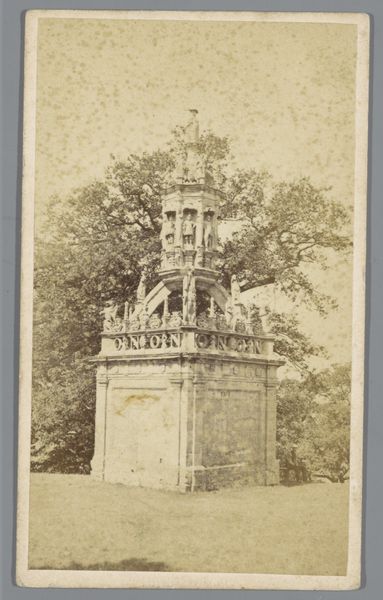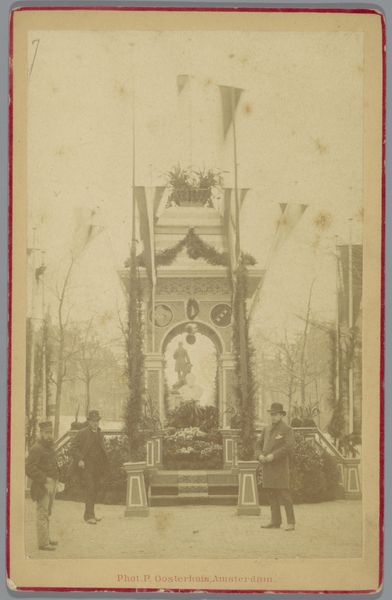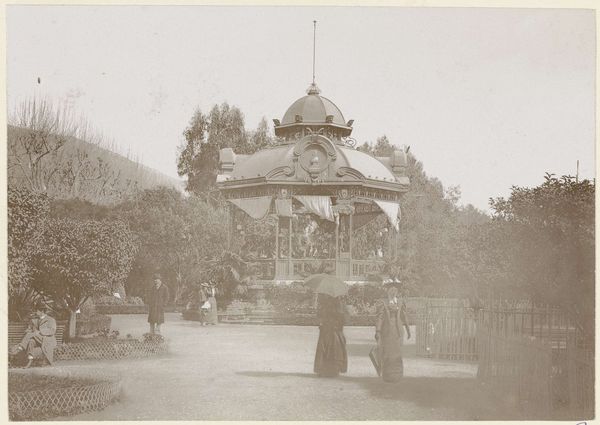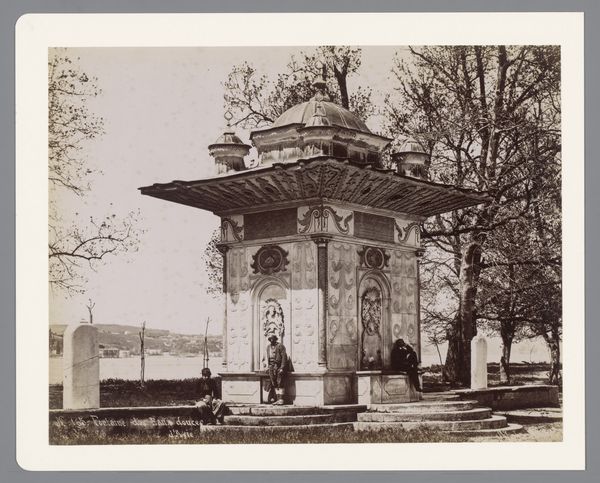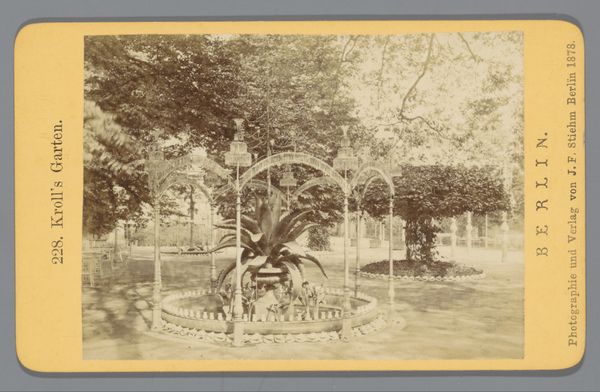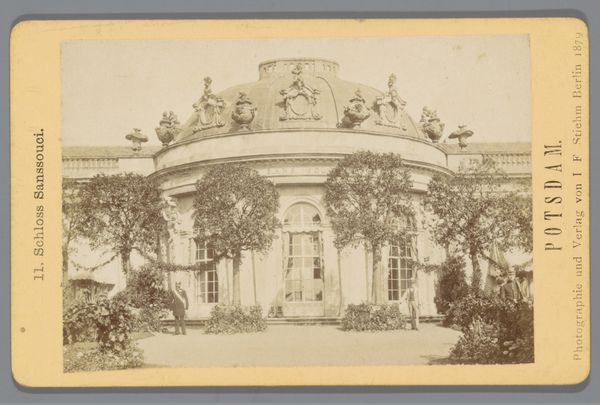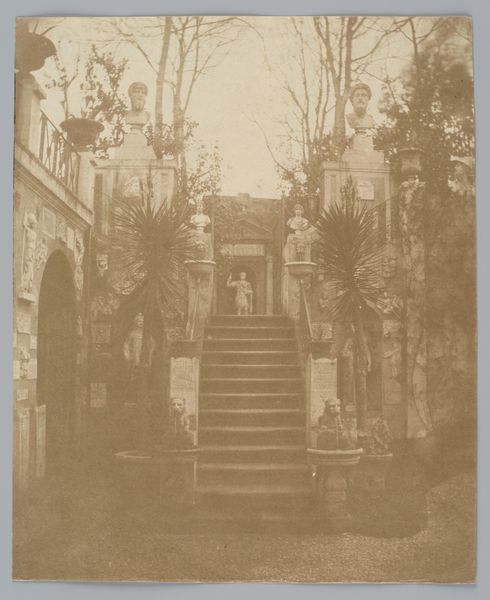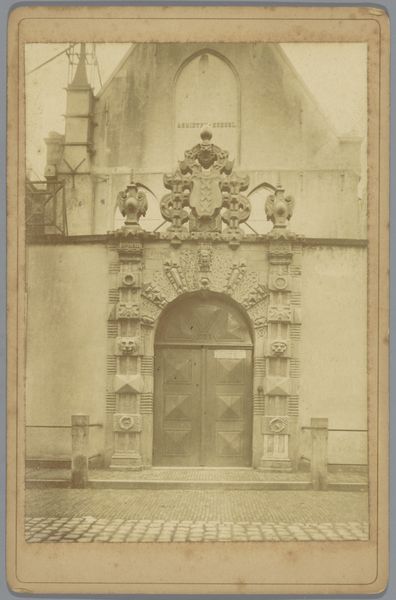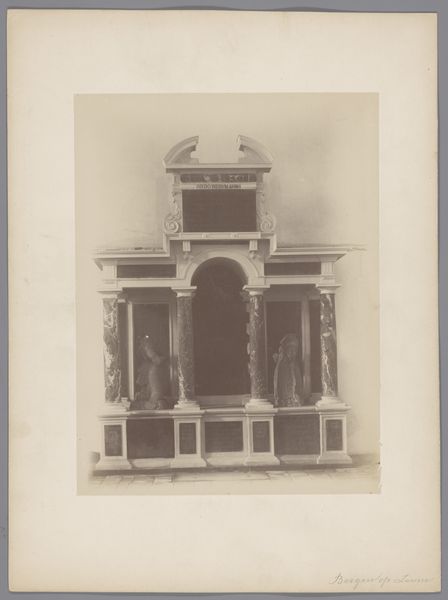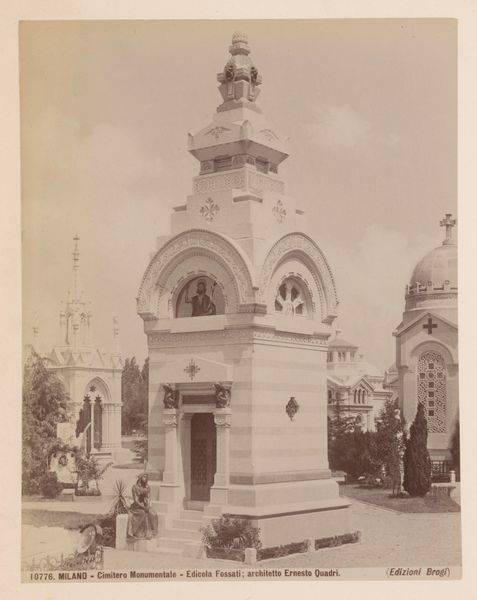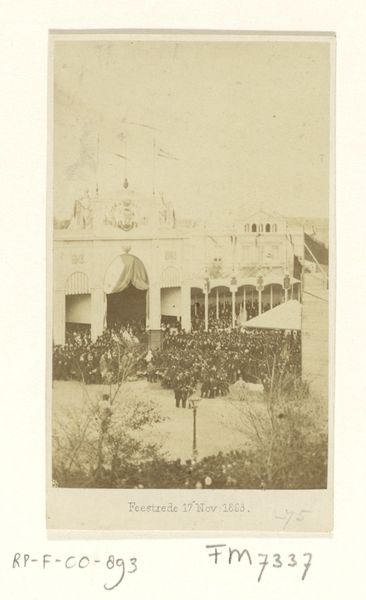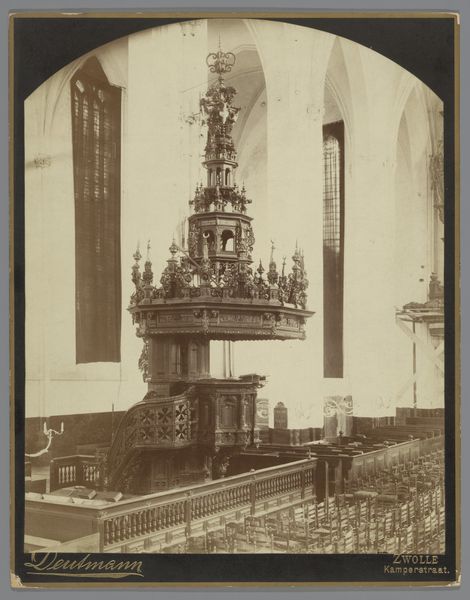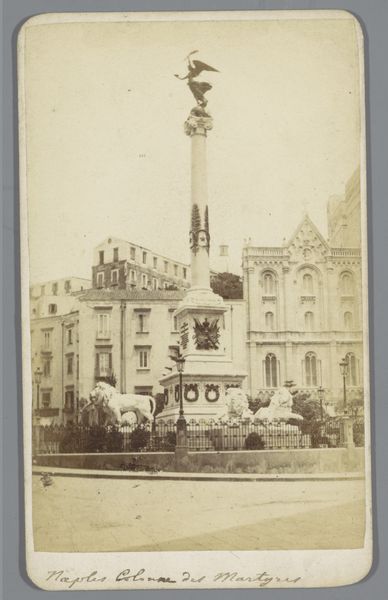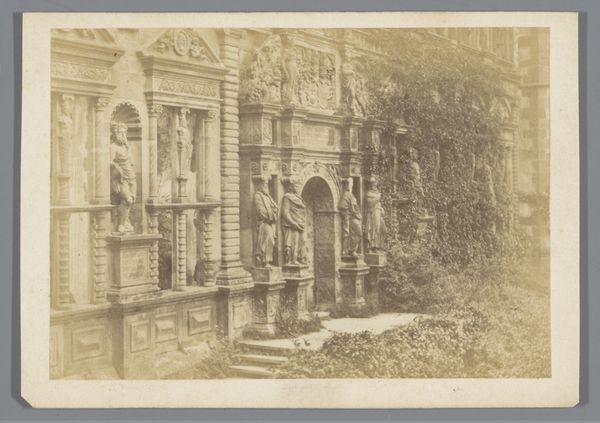
Versierde boog op het Thorbeckeplein in Amsterdam tijdens de Aprilfeesten van 1887 1887
0:00
0:00
photography, site-specific
#
16_19th-century
#
photography
#
site-specific
#
19th century
#
cityscape
Dimensions: height 168 mm, width 108 mm
Copyright: Rijks Museum: Open Domain
Editor: This is "Versierde boog op het Thorbeckeplein in Amsterdam tijdens de Aprilfeesten van 1887," a photograph from 1887 by Andreas Theodorus Rooswinkel. The image feels like a captured moment of civic pride and festivity. I’m drawn to the almost dreamlike quality of the old photograph, and how this temporary structure carries so much cultural weight. How do you read the symbolism in this photograph? Curator: Well, notice the flags and floral arrangements – visual emblems that connect us directly to the celebrations themselves. What emotions do those repetitive forms evoke in you? The garlands also hint at cyclical time, a yearly renewal…the return of Spring and the festivities around it. This celebratory imagery wasn't arbitrary, it communicated specific values and affiliations to the public of 1887, embedding itself in Amsterdam’s cultural memory. Editor: So it’s less about the beauty of the decoration, and more about the encoded messages? Curator: Both. The aesthetic choices were deliberate attempts to construct a particular visual identity for the city and the Aprilfeesten. What does this “cityscape” communicate, and what is kept invisible in this medium of photography? We see a highly decorated structure, celebrating and concealing other aspects of city life, directing our memory. Editor: I hadn't considered what the photographer might have left out, focusing on specific cultural messages. Curator: Precisely. Understanding how these symbols operated then allows us to decode their legacy today, tracing how civic pride and cultural identity are visualized over time. Editor: This has really expanded how I look at historical photographs! Thanks!
Comments
No comments
Be the first to comment and join the conversation on the ultimate creative platform.
